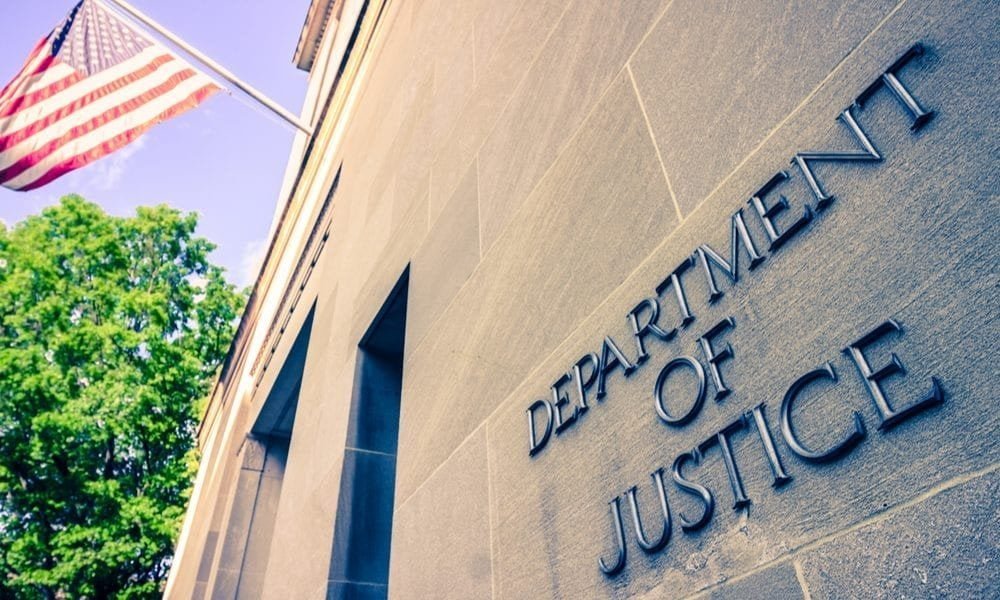DOJ Files First Criminal Complaint Against US Citizen Allegedly Using Cryptocurrency to Evade Sanctions – The US Justice Department has filed its first criminal case against a US citizen who apparently tried to avoid American sanctions by using cryptocurrencies, according to a judicial opinion document filed on Friday by US Magistrate Judge Zia M. Faruqui. The case remains sealed.
Judge Faruqui stated why he allowed the Department of Justice’s criminal complaint against an American citizen accused of sending more than $10 million in bitcoin to a crypto exchange in a country that has been extensively sanctioned. North Korea, Cuba, Syria, Iran, and the region of Crimean, Luhansk and Donetsk, are currently under sanctions.
Also Read: David Marcus Launches Bitcoin Payments Startup Lightspark
The Office of Foreign Assets Control (OFAC) of the US Treasury Department has fined crypto exchange platforms for breaking sanctions regulations. The judge, however, explained:
“The Department of Justice would prosecute businesses and people who fail to comply with OFAC regulations, including virtual currency regulations.”
According to the DOJ, the defendant, a U.S. citizen, utilized an IP address in the United States “to conspire to run an online payments and remittances business” situated in a country that has been fully sanctioned.
The Department of Justice noted:
“The payments platform offered its services as a way to circumvent US regulations, including what appear to be untraceable virtual currency transfers.”
The defendant also used a cryptocurrency exchange in the United States to buy and sell bitcoin. The defendant also used that crypto exchange account to send over $10 million in BTC for the platform’s users between the United States and sanctioned countries. According to the DOJ, the defendant plotted to violate the United States by infringing the International Emergency Economic Powers Act (IEEPA).
DOJ Files First Criminal Complaint Against US Citizen Allegedly Using Cryptocurrency to Evade Sanctions – “The question is no longer whether virtual money is here to stay,” the judge added, “but rather whether fiat currency rules will keep pace with transparent and frictionless blockchain payments.”




